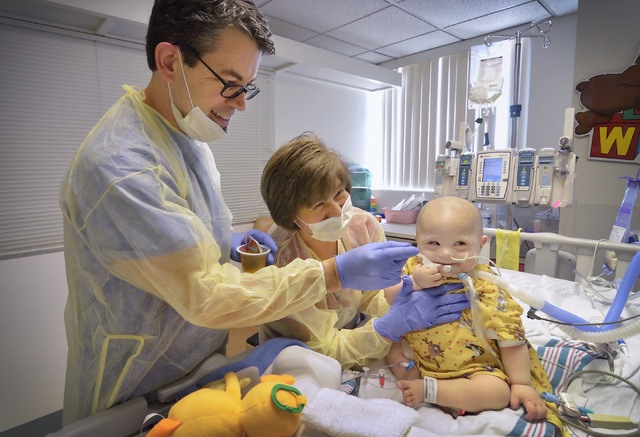Can a Speech Pathologist Help with Stuttering? Find Out What You Need to Know
Can a Speech Pathologist Help with Stuttering? Find Out What You Need to Know
Blog Article
Just How a Speech Pathologist Can Assist Improve Interaction Abilities
Efficient communication is a cornerstone of expert and individual success, yet many people deal with difficulties that prevent their ability to reveal themselves plainly. A speech pathologist is furnished to address these barriers with targeted evaluation and intervention techniques tailored to each individual's demands.
Understanding Communication Problems
Comprehending communication conditions is vital for recognizing exactly how they influence individuals' capacity to reveal themselves and involve with others. Communication conditions incorporate a wide variety of troubles that impact speech, language, and social interaction, often impeding reliable communication. These disorders can develop from different elements, including neurological problems, developing hold-ups, physical disabilities, or psychological issues.
Speech conditions might manifest as difficulties in fluency, expression, or voice production, impacting how words are noticable or talked. Language problems, on the other hand, include difficulties in understanding or utilizing language, which can restrain both verbal and non-verbal communication. Social communication problems are characterized by troubles in the pragmatic aspects of communication, such as taking turns in conversation or understanding social signs.
The consequences of interaction problems are profound, affecting not only the person's capability to communicate feelings and thoughts however also their social connections, instructional opportunities, and general high quality of life. Understanding of these disorders can foster compassion and assistance, urging effective approaches for communication and involvement. Comprehending the intricacies of communication conditions is an essential step towards promoting inclusivity and addressing the requirements of those influenced.
Role of a Speech Pathologist
Speech pathologists regularly play a crucial duty in dealing with and identifying interaction problems, employing a series of evidence-based methods customized to every person's needs. These professionals function with people throughout the life expectancy, from youngsters with speech delays to grownups recouping from strokes or stressful mind injuries. Their expertise includes a selection of interaction issues, including articulation, language, fluency, and voice disorders.
In therapeutic settings, speech pathologists use structured treatments created to boost communication skills. They might apply techniques such as speech exercises, language games, and social communication training to assist in renovations in responsive and meaningful language capacities. Speech Pathologist. In addition, they educate clients and their family members about reliable interaction strategies and adaptive techniques to browse everyday communications
Beyond direct treatment, speech pathologists team up with various other health care caregivers, professionals, and educators to make sure an extensive technique to treatment. They promote for customers by providing sources and support, enabling individuals to accomplish their communication objectives and enhance their total lifestyle. As specialists in the field, speech pathologists are crucial in promoting reliable interaction, advertising self-reliance, and boosting social engagement for those with communication challenges.
Evaluation and Medical Diagnosis Refine
The assessment and medical diagnosis procedure conducted by speech pathologists normally includes a detailed analysis to determine interaction disorders properly. This procedure begins with a detailed case background, where the clinician collects significant information concerning the individual's clinical, educational, and developing history. Recognizing the context of the person's interaction problems is crucial for an exact diagnosis.
Following the medical history, speech pathologists make use of standard tests and casual evaluations to evaluate different elements of communication, consisting of speech noise production, language understanding, expressive language, and social communication abilities. These evaluations are tailored to the person's age and particular issues, offering important information for analysis.
Observation is additionally an important element of the assessment procedure, as it allows the clinician to see direct how the specific communicates in all-natural setups. Furthermore, interviews with member of the family and instructors can supply insight right into the person's interaction difficulties throughout different atmospheres.
When the analysis is total, the speech pathologist synthesizes the searchings for to establish a diagnosis and advise appropriate interventions. This extensive analysis process makes certain that individuals obtain targeted support customized to their special view it now communication requirements, laying the structure for efficient restorative methods.
Restorative Methods and Approaches
Various restorative methods and techniques are utilized by speech pathologists to address a variety of interaction disorders effectively. One widely utilized method is expression therapy, which concentrates on correcting speech appears through rep and visual hints. This method is especially beneficial for people with speech audio problems.
One more efficient method is language intervention, which enhances both expressive and responsive language skills. This may entail interactive activities that promote vocabulary advancement, syntax understanding, and conversational abilities. Additionally, speech pathologists often utilize social abilities training to enhance practical language capacities, enabling individuals to browse social interactions extra effectively.
Fluency shaping and stuttering alteration methods are particularly made to assist those experiencing fluency conditions. These methods assist customers establish smoother speech patterns and manage the emotional and physical elements of stuttering.
In addition, alternative and augmentative communication (AAC) systems are employed for individuals with extreme interaction impairments. These systems, which can include motions, icons, or electronic tools, provide necessary assistance for efficient interaction.
Benefits of Speech Therapy

Furthermore, speech treatment can assist in developing vital listening and understanding abilities, fostering better interaction in conversations. Individuals with cognitive-communication conditions can additionally benefit, as treatment concentrates on strengthening memory and problem-solving capabilities, necessary for effective interaction.
Another crucial facet is the psychological support supplied during treatment sessions. Speech pathologists develop a risk-free environment, encouraging patients to conquer anxiety and frustration associated to their communication problems. This support can lead to boosted self-confidence and general psychological well-being.
Moreover, early treatment through speech therapy can stop further issues, guaranteeing that people reach their complete communicative potential. Overall, the advantages of speech treatment prolong beyond simple speech enhancement, positively influencing numerous dimensions of life for those influenced by interaction problems.
Conclusion
In summary, speech pathologists play an important duty in addressing interaction problems via evaluation, diagnosis, and tailored therapeutic treatments. By utilizing evidence-based methods, these professionals improve people' speech and language capabilities, promoting enhanced clarity, fluency, and social interaction skills. The benefits of early intervention highlight the relevance of looking for aid from speech pathologists, as their expertise can considerably boost communicative potential, ultimately causing greater success in both expert and personal balls.

Speech pathologists regularly play an essential duty in dealing with and identifying interaction disorders, using a variety of evidence-based strategies tailored to each individual's demands. As professionals in the area, speech pathologists are necessary in fostering reliable interaction, promoting self-reliance, and enhancing social involvement for those with communication difficulties.

Report this page